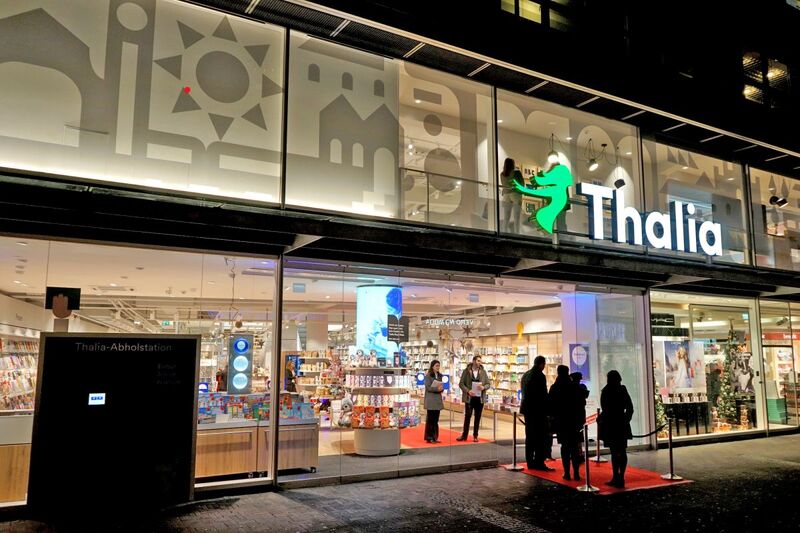You are viewing your 1 free article this month. Login to read more articles.
BA backs campus bookshops as Leicester axes academic offer
The Booksellers Association (BA) has defended the importance of bookshops on university campuses in the wake of the University of Leicester Bookshop being threatened with closure.
On the eve of the new academic year, The Bookseller has discovered the University of Leicester is looking at “new ways of providing a bookselling service to students [which] reflects the changing world of retail and the way in which students buy, read and use books”. As such, it has proposed closing the academic bookshop that has been on campus for more than five decades.
The proposals, which are subject to consultation, would involve replacing the well-respected bookshop with a service “which enables students to order books through the university, alongside pop-up bookshops within departments at the start of term”. Students would also be able to order books from the students’ union, along with event tickets, stationery, clothing, merchandise, and essay printing and binding services, The Bookseller understands.
A spokesperson for the university said: “The proposal reflects students’ needs and the way in which they now access books and other learning materials. By changing the way we provide our services, we will be more competitive and create much-needed study space on campus.
“In a nutshell, we would continue to deliver the service we always did, but in a different way, and use the physical space that is freed up in our David Wilson Library to create space for social study, which students demand.”
The slated closure will come as a shock for many in the industry: the shop’s former manager, Jane Anger, was a respected and well-known vice-president of the BA’s Academic Booksellers Group. Anger left the shop earlier this year after decades of service.
The University of Leicester has proposed closing its on-campus bookshop to 'reflect the changing world of retail'
News of the proposed closure comes after bookseller Ron Johns’ The University Bookseller, based in Plymouth, closed in December after 42 years. Johns cited “stubbornly low” discounts from publishers and a change in the way in which students source information: online, as opposed to using books.
“I really cannot see that anybody has a job in selling textbooks,” Johns said at the time.
Statistics from Students’ Information Sources in the Digital World 2015/16, published by Nielsen, showed that of those who bought new print books in the 2015/16 academic year, 41% did so at one point from a bookshop (25% did so from a campus bookshop, 18% from a high-street bookshop), with 72% buying online (70% of respondents had bought a course book from Amazon; 6% from a bookshop’s website; 2% from a publisher). A Nielsen spokesperson said the results demonstrated the extent to which Amazon dominates the student book-buying market, but added that while the e-tailer has gained customers, its share of volume sales has actually declined, while campus bookshops’ share has grown.
Alan Staton, head of marketing and communications at the BA, told The Bookseller: “At a time when campuses, and students, need bookshops more than ever, it’s sad to see the closure of such a brilliant university bookshop as Leicester, especially coming after the closure of Plymouth’s The University Bookseller in December.
“As universities move from the Research Excellence Framework (REF) to the Teaching Excellence Framework (TEF), quality teaching and learning resources will become ever more central, and nobody is better placed to objectively curate and advise on the best learning resources than campus booksellers. This is a message that the BA’s Academic Booksellers Group is working hard to communicate to both academic and non-academic staff at our universities.”
Numbers of bookshop members in the BA’s Academic Booksellers Group have fallen recently, from 268 in 2014 to 262 at the beginning of 2016, the trade body said.
However, the outlook for academic bookshops isn’t all gloomy: one entrepreneurial bookseller, David Brett, is in the process of opening The Word on New Cross Road, near Goldsmiths University of London. Brett, who worked for academic bookshops Marylebone Books and John Smiths before embarking on the venture, said: “I have been an academic bookseller for a long time and I always wanted to run my own business and do things my own way. My girlfriend has recently graduated from [Goldsmiths] and I thought it was a shame it didn’t have a nearby bookshop. [Blackwell’s recently closed its on-campus bookshop.]”
Brett plans to have a grand opening for the 37 sq m ground-floor shop on 19th September, and will print The Word T-shirts and offer loyalty cards to students. Asked whether he was concerned about the challenges of opening an independent academic bookshop in the current climate, he said: “Am I brave, or foolish? I don’t know. I am trying to be realistic, I know it is going to be a challenge. But being independent, I can be quite nimble. I don’t have any head-office overheads to support, and no bureaucracy to get bogged down in. I am optimistic.”
He added: “I’m energised and encouraged by the good wishes and overwhelming support from Goldsmiths staff—not just lecturers, but everyone. It shows how much they want the bookshop there that they are doing so much to help me make it happen, and not just function as a bookshop, but also a location for events.”


















